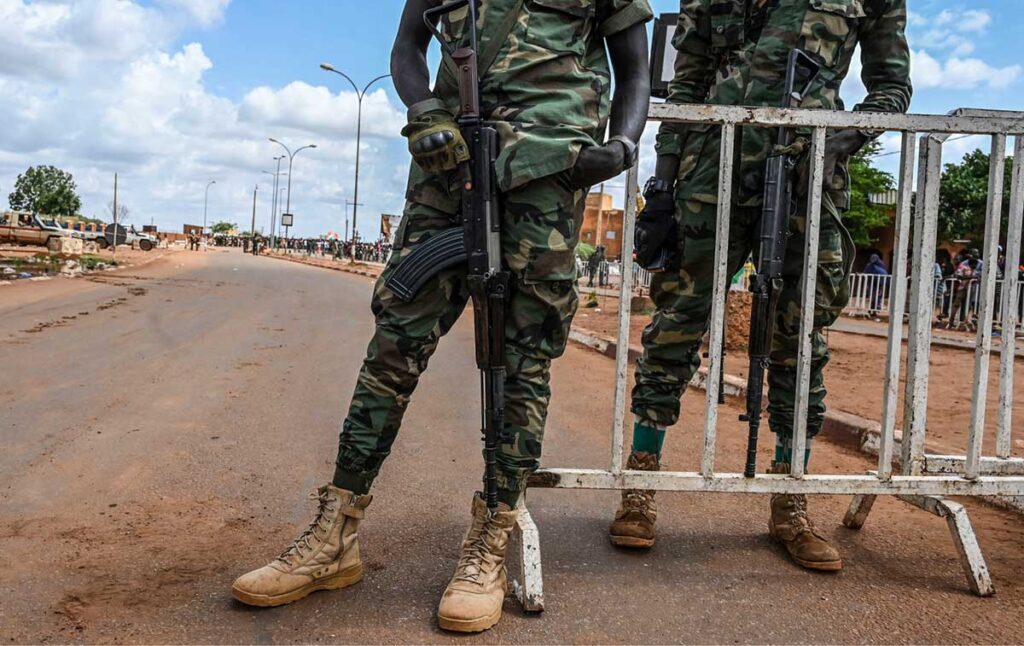The information landscape in Africa is dangerously compromised by information manipulation and interference campaigns stemming from various sources. These include foreign state-sponsored propaganda and disinformation, as well as domestic bad actors ranging from political parties and governments to for-profit disinformation enterprises.
This “proliferation of disinformation”, as the Africa Center for Strategic Studies termed it in a report in March this year, exists within a circular economy; disinformation is enabled by stressed and sometimes captured media ecosystems, but it also works to erode trust in media and compromise independent media’s ability to function as the watchdog for open societies and democracies.
Although this piece largely focuses on the effect that disinformation has on press freedom and trust in news in Africa, this is only one facet of the massive impact it has on all strata of societies. Recent campaigns across Africa have served to foment social instability, drive violence against minorities or opposition groups, and enable military coups in countries such as Mali, Niger and Burkina Faso, as detailed in an African Defence Forum report in February this year. The conditions created by disinformation include the erosion of trust in authority and self-censorship by media and citizen whistleblowers for fear of targeted attacks, which is fertile ground for corruption and criminality.
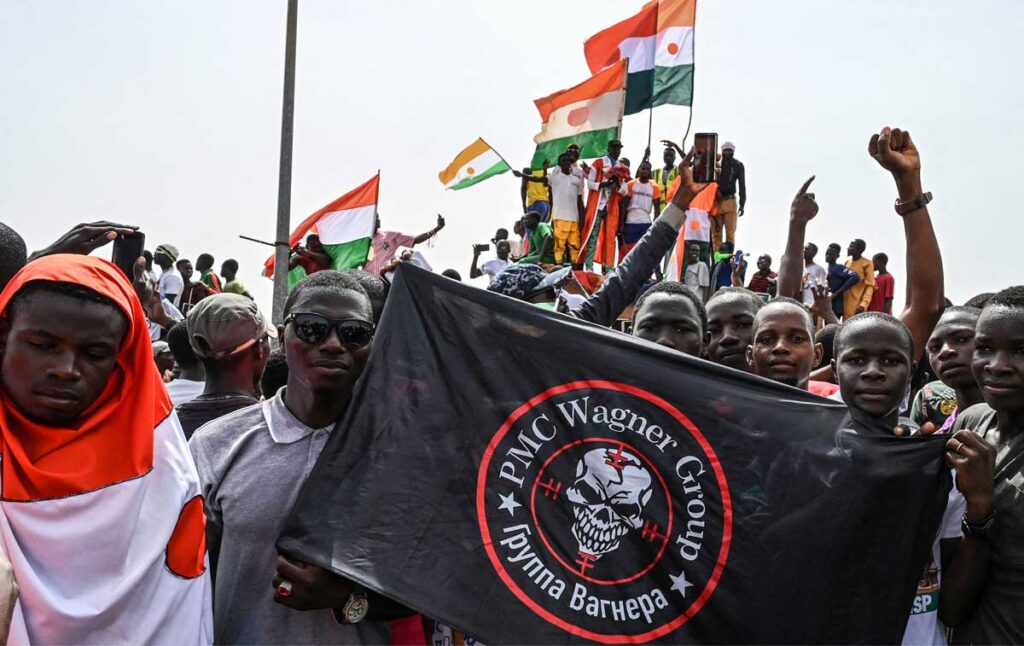
Before we examine the impact that disinformation has on a free press, it’s worth examining the terminology used to describe it. Russia and China are the two biggest state sponsors of disinformation in Africa, and the European External Action Service (EEAS) uses a less generalised term for this type of state-sponsored propaganda: Foreign Information Manipulation and Interference (FIMI).
FIMI is defined by the EEAS as “a pattern of behaviour that threatens or has the potential to negatively impact values, procedures and political processes. Such activity is manipulative in nature and conducted in an intentional and coordinated manner. Actors of such activity can be state or non-state actors, including their proxies inside and outside of their own territory.”
The Reporters Without Borders 2023 Press Freedom Index highlights the debilitating effect that disinformation, or “the digital ecosystem’s fake content industry”, as they term it, has on press freedom. “In 118 countries (two-thirds of the 180 countries evaluated by the Index), most of the questionnaire’s respondents reported that political actors in their countries were often or systematically involved in massive disinformation or propaganda campaigns. The difference is blurred between true and false, real and artificial, facts and artifices, jeopardising the right to information. The unprecedented ability to tamper with content is used to undermine those who embody quality journalism and weaken journalism itself,” the report noted. And Africa, the report says, has seen some of the 2023 Index’s biggest drops, with Senegal (104th) falling 31 places, and Tunisia (121st) falling 27 places.
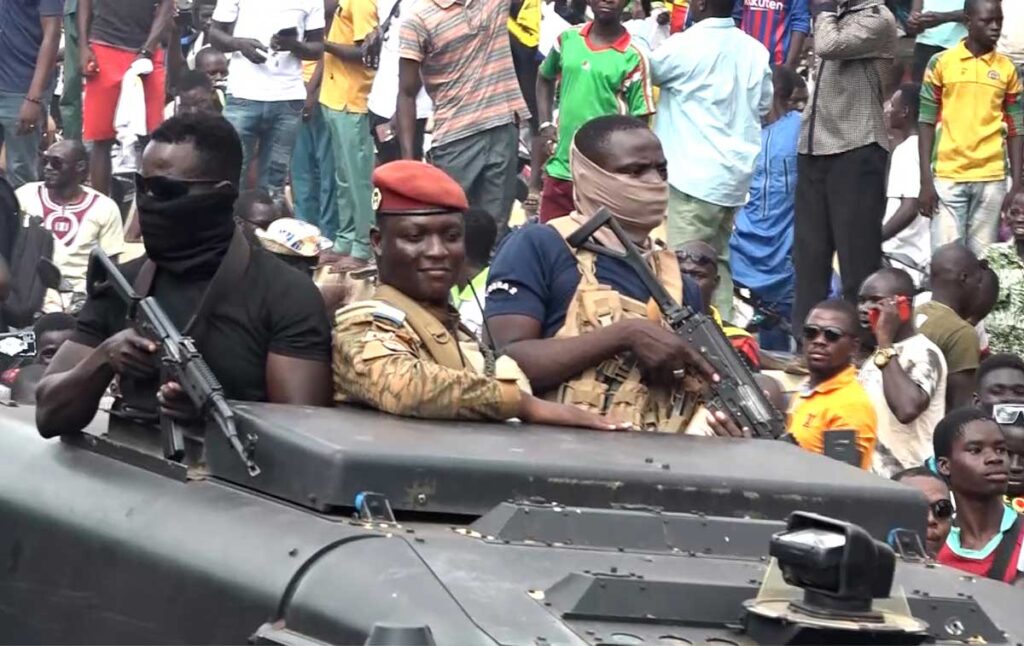
While Russia and China dominate the FIMI space in Africa, they are by no means the only players. In 2020, for example, Facebook announced that it had taken down three separate networks that were displaying signs of “coordinated inauthentic behaviour” that targeted communities across Africa. One, targeting the Central African Republic (CAR) and Mali, was linked to the French military, while the other two, focused on CAR and Libya, were linked to the then head of Russia’s mercenary group Wagner and founder of the Internet Research Agency troll farm, Yevgeniy Prigozhin.
According to Graphika, the company that exposed the networks and media in those countries suffered collateral damage as “the French and Russian operations in the CAR tried to expose each other, and repeatedly clashed in groups, comments, and cartoon wars.” Graphika described this as “a rare exposure of rival operations from two different countries going head to head for influence over a third country”, although the company did highlight that “Facebook did not attribute the operation directly to the French government or the French military”.
According to the Africa Center for Strategic Studies, Russia is the main purveyor of disinformation in Africa, targeting more than 22 countries with 80 documented campaigns and representing nearly 40% of all disinformation campaigns. “The Chinese Communist Party (CCP) – via the United Front and China Media Group – is the second most prolific Africa-wide sponsor of disinformation, with five known multi-regional campaigns.”
But how do these operations play out, and what is the impact on press freedom? Media is both a target and arena for FIMI, impacting news organisations in several ways. A recent report by Code for Africa’s (the author is the deputy director of Code for Africa) African Digital Democracy Observatory (ADDO) points out the various ways that foreign states attempt to influence media, and indeed to effect media capture. These methods are designed to take advantage of the increasingly dire financial straits and concomitant lack of resources of much of the news media in Africa. They include engaging in content-sharing agreements with media houses, allowing the spread of foreign state-produced content into trusted African media.
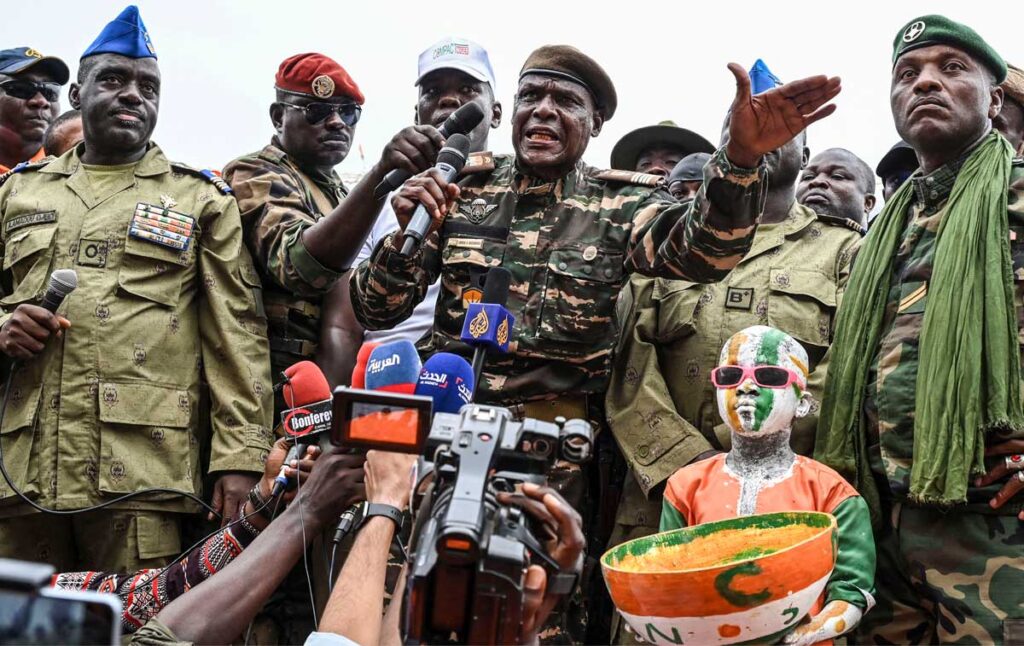
Examples are the People’s Republic of China’s (PRC) Xinhua news agency content and Russia’s RT. According to ADDO, Chinese state media accounted for the most agreements with African news agencies at 17 agreements, followed by Russian state media at 15 and Türkiye at two. For an idea of the scale of content supplied, syndicated foreign state-supplied content from Xinhua formed a quarter of South Africa’s African News Agency’s published stories from 31 October 2022 to 31 October last year. In Kenya, Xinhua’s content-sharing agreement with the Nation Media Group gives it access to eight radio and television stations in four East and central African countries, 28 million social media followers, 11.3 million monthly viewers, and a daily newspaper circulation of 90,000.”
Other ways of infiltrating state propaganda into news ecosystems are as simple as controlling media infrastructure. In Kenya, for example, the PRC’s StarTimes broadcast network provides free digital satellite TV and solar-powered projectors for screening content in public squares to 10,000 villages across Africa, and PRC media have created an estimated 500 local media jobs, with hundreds more journalists being trained in the PRC.
It’s not just trust in news that is impacted by disinformation and propaganda. It’s trust in general. The Reuters Institute for Journalism’s 2023 Digital News Report revealed that across the markets the report covers, 56% said they worried about identifying the difference between what was real and fake on the internet when it came to news, up two percentage points from 2022. It’s much worse for the African countries surveyed, where the average was 77% (Roper authors the South African section of the Reuters DNR, and Code for Africa funds the reports for Kenya, Morocco, Nigeria and South Africa).
As difficult as it is for reputable news organisations to struggle against the tide of disinformation that hijacks audience and advertising revenue and erodes trust, more worrying is the way states use the threat of disinformation to justify cracking down on a free press and on access to information.
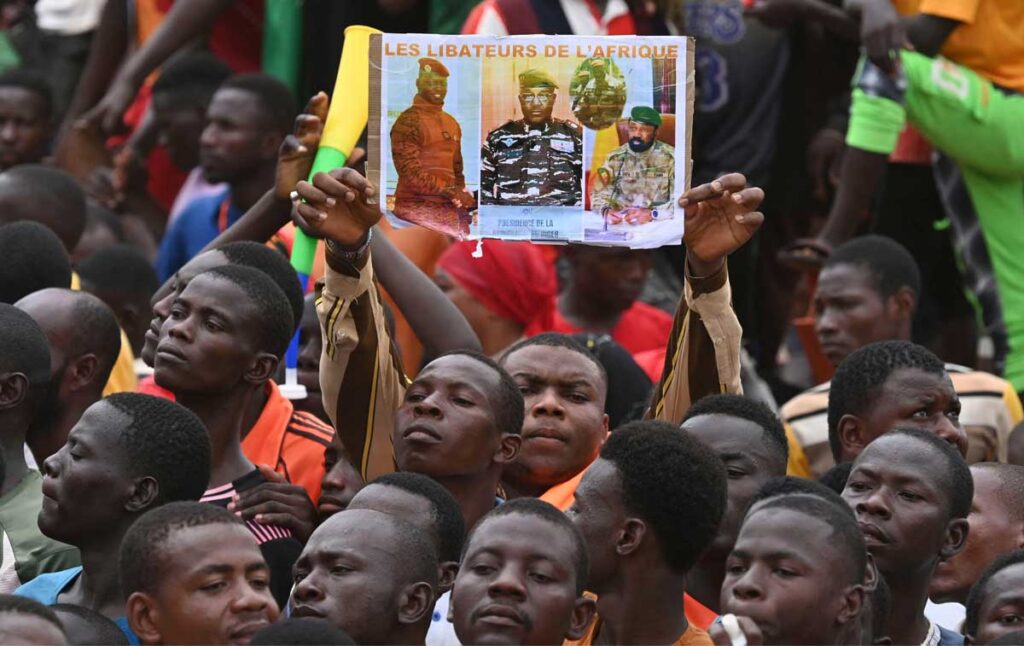
They do this in two ways. First, by implementing internet shutdowns, ostensibly on grounds of cyber security. According to Africa Report, “between 2020 and 2023, at least 22 African countries implemented complete or partial internet shutdowns. These straddled the continent – from Algeria in the Maghreb to Senegal, Guinea, Sierra Leone, Mauritania, Mali, Burkina Faso, Togo, and Nigeria in West Africa; Chad, Gabon and the Republic of Congo in central Africa; Ethiopia, Sudan, South Sudan, Somalia, Uganda, Tanzania and Burundi in East Africa; and Eswatini, Zambia and Zimbabwe in southern Africa.”
But while these shutdowns and the economic damage they cause have a deleterious effect on press freedoms, more threatening is the propensity of some governments to use the threat of disinformation to pass new cybersecurity and online speech laws restricting freedom of expression.
As the Africa Center for Strategic Studies puts it, “Increasingly, leaders are taking advantage of vague elements of recently passed cybercrime laws to expand executive powers to arrest activists and debilitate the free press.” While states justify repressive legislation and tactics by claiming they are necessary to fight disinformation and its consequences, these laws essentially work to make governments less accountable to citizens and to erode democratic rights.
Tanzania’s 2015 Cybercrimes Act, for example, “was ostensibly passed to fight rising digital crime. In practice, it bans “insulting” speech, empowers law enforcement officials to respond to violations without judicial checks, and allows authorities to crack down on whistleblowers who use government data to report wrongdoing. The Cybercrimes Act was followed by the 2018 Electronic and Postal Communications Regulations, which require bloggers to register with the government and internet cafes to keep surveillance videos of people using their services, the ACSS says.
The growing rollout of generative AI can exponentially increase disinformation’s impact on press freedom by driving down the cost of production, allowing bad actors to scale propaganda campaigns, and reaching new audiences. There are no easy remedies for the damage disinformation is doing to press freedom across the continent. News organisations will have to empower their staff to use the tools and techniques of organisations that combat disinformation and concentrate on building and maintaining a relationship of trust with their audiences.

Chris Roper
Chris Roper is deputy CEO for the continent’s largest federation of civic technology and data journalism labs, Code for Africa (CfA). He also serves as director for CfA’s forensic data initiative, the African Network of Centres for Investigative Reporting. Prior to joining CfA, Chris was editor-in-chief of the Mail & Guardian, and editor-in-chief of 24.com.

